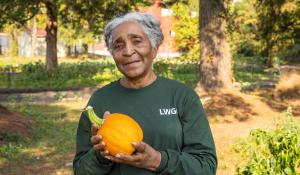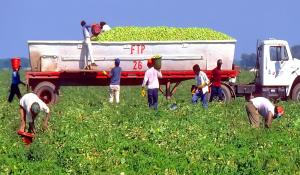
One person's trash is another person’s treasure, but with a little creativity, some of your waste may never have to make a trip to the landfill. Many items lying around the house can be repurposed into something new without needing to buy anything. Here is a short list of free zero-waste swaps that are kind to your wallet and to the planet.
Silverware
Wooden utensils are a favorite among zero waste bloggers—but they’re not a necessity, especially when cutlery already exists in our kitchen drawers. Also, many thrift stores such as Salvation Army and Goodwill sell cheap kitchenware. If you’re on the crafty side, try taking an old t-shirt and sewing a wrap for your cutlery to make it easy to-go. Or wrap them with a cloth napkin and slip them in your bag or glove box.
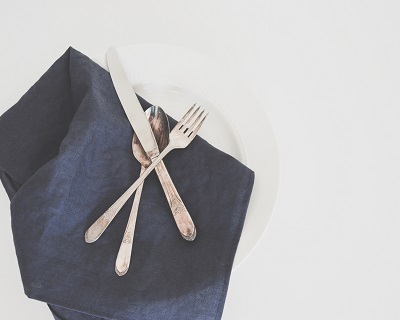
Old T-shirts
They’re not just the bottom-dwellers in our drawers. They can be cleaning rags and kitchen towels, too! Cut them up to the size you need, and you won’t have to purchase anything—just add them to your laundry routine and run them with hot water when dirty. If you’re crafty, you can turn old t-shirts into yarn for crocheting reusable facial rounds, potholders, and other neat things.
Brown Paper Bags
Even the most resolute Green Americans will forget a reusable grocery bag from time to time. While recycling and composting are both options, brown paper bags can also double as wrapping paper, book covers, or taped into a mailer for a small package.
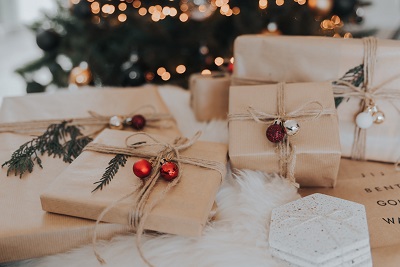
Old Sheets
Do your bed sheets have tears, stains, or are generally not usable anymore? Like old t-shirts, bed sheets are a gold mine for cloth. YouTube and Pinterest have a plethora of how-to’s for cutting your bed sheet into yarn to crochet for rugs, baskets, and more. Check out this simple how-to from YouTube here
Grow Your Own Food
The industrial agricultural system creates mass amounts of food waste before it even makes it to our plates. Try asking your Buy Nothing group or Facebook Marketplace for seeds to start your own garden or try a locally owned garden shop. You’ll skip the entire agricultural supply chain when you do this and know exactly what’s in your food, too. Permaculture Gardens offers workshops to help urban gardeners make the most of their space. If you’ve got an organic garden going, register it as a Climate Victory Garden with us at greenamerica.org/cvg.
Using Up Your Food
On the same thread as growing your own food, we can also reduce food waste and save money by doing the mundane: eating leftovers and the long-time residents of our pantries before they spoil. Additionally, “sell by” and “best by” dates are not for the consumer—they’re
so the retailer knows how long they’ve been on the shelves. “Use by” dates just mark when the food is at peak quality, not that it has spoiled. The only food that has an actual expiration date—in other words, when the food should not be consumed—is infant formula because it loses nutrients. Therefore, most food past its date belongs on the table, not the trash. Read more about using up food at greenamerica.org/foodwaste.
Urban Foraging
While a little unorthodox, urban foraging —searching for wild food, like plants and berries—is entirely free. Join an urban foraging class near you or pick up Stalking the Wild Asparagus by Euell Gibbons, a reliable guidebook, at the library. As long as you’re searching responsibly, not trespassing, and thoroughly washing what you pick, urban foraging is a low-impact way to add food to your plate without spending a penny.
Broken Mugs and Old Candle Containers
Candle containers that come with a lid can be repurposed as containers for DIY beauty products, like exfoliant made from used coffee grounds and honey. When a mug handle breaks or a crack develops, its not good at its intended purpose of holding hot drinks anymore; however, it does make a charming container for succulents or other small plants.
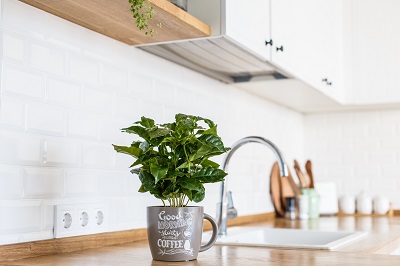
Gently Used Clothing
Organizing a clothing swap is simple: gather a group of friends or co-workers, ask them to bring gently used clothes they don’t wear anymore, and swap amongst yourselves. Clothing swaps are a great way to refresh your wardrobe without buying anything new and keeps perfectly good clothing in use. According to WRAP UK, keeping clothing in use for just nine extra months can reduce the related carbon, water, and waste footprint by 20-30 percent. Read more about the benefits of clothing swaps over donating in “Unraveling the Fashion Industry."
This short list is just the beginning—you will likely invent new ways to repurpose things as you go about reducing individual waste. Joining communities online and in-person can help spark creativity and the cross-pollination of zero waste ideas. Browsing the r/zerowaste subreddit, Facebook zero waste groups, and meeting with sustainability-minded people near you are all ways to learn more. Read
“What You Gain When You Buy Nothing” to learn more about community-based green living.


